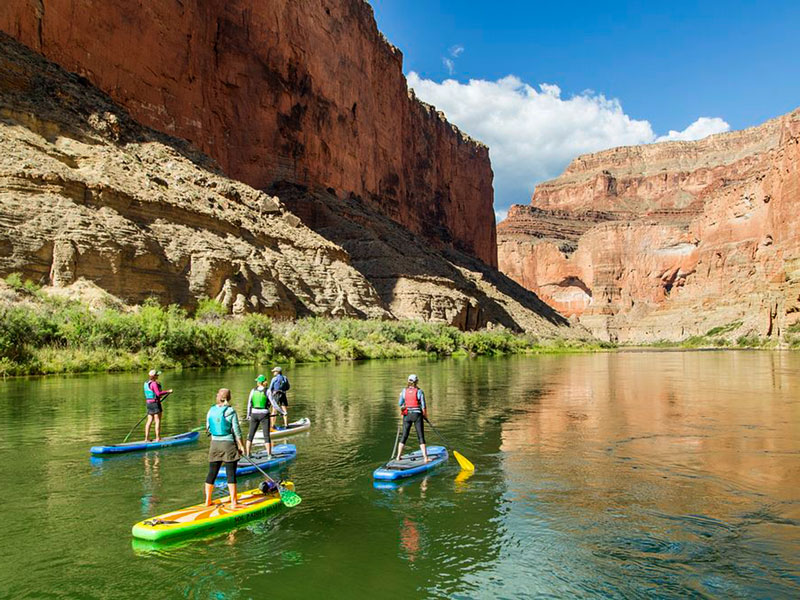Travel and Adventure: Exploring the World and Yourself
Introduction
Travel and adventure are age-old human pursuits, evoking a sense of discovery, wonder, and connection with the world around us. From ancient explorers setting sail into the unknown to modern adventurers trekking through dense jungles, scaling mountains, or immersing themselves in distant cultures, the call of travel has always been strong. The beauty of travel is that it offers something for everyone, whether it’s a relaxing beach vacation or a heart-pounding wilderness expedition.
In this article, we will explore the various dimensions of travel and adventure, delving into the reasons why people seek these experiences, the different types of adventure travel, practical planning tips, the personal and societal impacts of travel, and how it influences our understanding of the world.
1. The Essence of Travel
1.1 The Human Desire for Exploration
The desire to explore new lands and experience different cultures has been a fundamental aspect of human history. Early migrations and explorations were driven by the need for survival, trade, and curiosity. Over time, travel evolved to become a form of personal enrichment, relaxation, and adventure.
- Curiosity and Discovery: Travel satisfies our inherent curiosity about the world. It allows us to discover new places, learn about different cultures, and broaden our perspectives.
- Breaking Routine: Traveling takes us out of our daily routines, providing a break from the monotony of everyday life and giving us the chance to experience something new.
- Self-Discovery: Travel isn’t just about discovering new places—it’s also about discovering yourself. Being in unfamiliar environments often leads to personal growth, reflection, and a deeper understanding of one’s values and desires.
1.2 The Role of Adventure in Travel
While some travelers seek relaxation and comfort, others are drawn to the thrill and excitement of adventure. Adventure travel involves exploring challenging and often remote destinations, engaging in physically demanding activities, or encountering unpredictable situations.
- Adrenaline and Excitement: Adventure travel is often fueled by the desire for adrenaline and the sense of accomplishment that comes with overcoming physical and mental challenges.
- Cultural Immersion: Adventure travel often involves visiting less commercialized and more culturally rich destinations, providing a deeper connection to the local people and their traditions.
- Personal Growth: The unpredictability of adventure travel forces individuals to adapt, learn new skills, and push their limits, often resulting in significant personal growth and increased confidence.
2. Types of Travel and Adventure
2.1 Cultural Travel
Cultural travel is all about immersing yourself in the traditions, customs, and daily life of different communities around the world. It provides an opportunity to learn about history, art, language, and the local way of life.
- Cultural Festivals: Many travelers seek out destinations known for their unique cultural festivals, such as India’s Holi Festival, Brazil’s Carnival, or Japan’s Cherry Blossom Festival.
- Historical Sites: Visiting ancient landmarks like the Pyramids of Egypt, the Great Wall of China, or Machu Picchu allows travelers to step back in time and learn about the civilizations that shaped the world.
- Food Tourism: Exploring local cuisines is an integral part of cultural travel. From Italian pasta to Thai street food, experiencing local flavors provides insight into a region’s traditions and way of life.
2.2 Adventure Travel
Adventure travel is for those who crave excitement and challenge. It involves exploring remote, rugged, and sometimes dangerous environments while engaging in physical activities that push one’s limits.
- Trekking and Hiking: Popular trekking destinations include the Inca Trail in Peru, Mount Kilimanjaro in Tanzania, and the Annapurna Circuit in Nepal. These routes take travelers through breathtaking landscapes while testing their endurance.
- Scuba Diving and Snorkeling: Exploring underwater worlds is a thrilling form of adventure travel. The Great Barrier Reef in Australia and the Blue Hole in Belize are famous spots for diving and snorkeling.
- Mountaineering: Climbing mountains, such as Mount Everest or the Matterhorn, is the ultimate adventure for those who seek to conquer the world’s highest peaks.
- Safari: African safaris offer travelers the chance to witness incredible wildlife in their natural habitat. Destinations like Kenya, Tanzania, and South Africa are renowned for their safari experiences.
2.3 Eco-Travel and Sustainable Adventure
With a growing awareness of the environmental impact of tourism, many travelers are seeking eco-friendly and sustainable travel experiences. Eco-travel promotes responsible tourism practices that minimize harm to the environment and local communities.
- Sustainable Lodging: Eco-friendly accommodations, such as eco-lodges, offer travelers the chance to stay in nature without leaving a negative footprint. These lodges often use renewable energy sources and support local conservation efforts.
- Wildlife Conservation: Travelers can participate in conservation-focused trips, such as volunteering at wildlife sanctuaries or supporting initiatives that protect endangered species.
- Minimal Impact Activities: Activities like kayaking, camping, and hiking are popular among eco-travelers because they have a minimal impact on the environment while allowing travelers to experience the beauty of nature.
2.4 Luxury Travel
For those who prefer a more comfortable and indulgent experience, luxury travel offers the ultimate in relaxation and pampering. Whether it’s staying at a five-star resort, enjoying gourmet cuisine, or taking a private yacht cruise, luxury travel is designed for comfort and exclusivity.
- Luxury Safaris: Some safari companies offer high-end experiences, complete with luxury tented camps, gourmet meals, and private game drives.
- Private Island Resorts: For the ultimate in exclusivity, travelers can stay at private island resorts in destinations like the Maldives or the Caribbean, offering stunning views, private beaches, and personalized service.
- Luxury Cruises: Cruising offers a unique way to travel in luxury while visiting multiple destinations. From Mediterranean cruises to river cruises through Europe’s charming towns, luxury cruises provide comfort and convenience.
2.5 Solo Travel
Solo travel has gained popularity in recent years, with more individuals seeking the freedom and flexibility of traveling alone. It allows for complete control over the itinerary and encourages self-reliance, independence, and personal reflection.
- Self-Exploration: Solo travel provides an opportunity for introspection and self-exploration. Many solo travelers use the time to reflect on their goals, dreams, and personal growth.
- Meeting New People: While traveling alone may seem lonely to some, solo travelers often find that they are more open to meeting new people and forming connections with fellow travelers or locals.
- Safety Considerations: While solo travel offers many benefits, it’s important to prioritize safety by researching destinations thoroughly, staying aware of local customs, and taking precautions to avoid risky situations.
3. Planning Your Adventure
3.1 Choosing Your Destination
Choosing the right destination is the first step in planning any travel adventure. Consider your interests, budget, time frame, and travel goals when selecting a destination.
- Research: Use travel blogs, guidebooks, and online resources to research potential destinations. Consider factors like climate, cultural attractions, outdoor activities, and safety.
- Budget: Some destinations are more budget-friendly than others. Southeast Asia, for example, is known for being a great region for budget travelers, while destinations like Europe or the Caribbean tend to be more expensive.
- Off-the-Beaten-Path: If you’re seeking a more unique or less crowded experience, consider traveling to lesser-known destinations. For example, instead of visiting Bali, Indonesia, you might explore the lesser-known island of Lombok.
3.2 Creating an Itinerary
An itinerary helps you plan your travel days, ensuring that you make the most of your time in a destination.
- Flexibility: While it’s important to have a general plan, leave room for spontaneity. Some of the best travel experiences come from unplanned adventures.
- Pacing: Avoid cramming too many activities into one day. Balance high-energy adventures with downtime to relax and absorb the experience.
- Local Experiences: Include activities that allow you to interact with locals, such as cooking classes, language exchanges, or attending cultural festivals.
3.3 Packing for Your Adventure
Packing appropriately is crucial, especially for adventure travel where conditions can be unpredictable.
- Essentials: Always pack essential items like a passport, travel documents, medications, and a basic first-aid kit.
- Travel Light: For adventure travel, it’s best to pack light and choose versatile clothing. Layers are important for destinations with varying climates.
- Gear: Depending on the type of adventure, you may need specialized gear like hiking boots, waterproof jackets, or camping equipment.
3.4 Health and Safety Considerations
Ensuring your health and safety while traveling is essential, especially when venturing into remote or challenging environments.
- Travel Insurance: Purchase comprehensive travel insurance that covers medical emergencies, trip cancellations, and lost luggage. For adventure travelers, make sure your policy includes coverage for activities like trekking, diving, or mountaineering.
- Vaccinations: Check whether your destination requires specific vaccinations or medications. Some regions may require protection against diseases like malaria, yellow fever, or typhoid.
- Safety Precautions: Stay informed about the safety conditions in your destination by checking government travel advisories. Always carry a copy of important documents, and let someone know your travel plans in case of emergencies.
4. The Impact of Travel and Adventure on Personal Growth
4.1 Expanding Your Worldview
One of the most significant benefits of travel is the expansion of your worldview. By visiting different countries, experiencing new cultures, and interacting with people from diverse backgrounds, travelers often gain a greater understanding and appreciation for the world.
- Cultural Awareness: Travel fosters empathy and cultural sensitivity, helping travelers break down stereotypes and learn to appreciate different ways of life.
- Perspective: Travel often provides perspective on one’s own life and circumstances, helping individuals develop gratitude for what they have while inspiring them to think globally.
4.2 Building Confidence and Independence
Traveling, especially in unfamiliar or challenging environments, helps build self-confidence and independence.
- Problem-Solving: Navigating foreign cities, overcoming language barriers, and dealing with unexpected challenges all require problem-solving skills and adaptability.
- Self-Reliance: Traveling solo or embarking on an adventure that pushes you out of your comfort zone encourages self-reliance and decision-making, building confidence in your abilities.
4.3 Cultivating Patience and Resilience
Travel is not always smooth, and it often presents challenges that require patience and resilience.
- Dealing with Delays: Missed flights, bad weather, and unexpected closures are all part of the travel experience. Learning to deal with these setbacks gracefully builds resilience.
- Pushing Boundaries: Adventure travel, in particular, requires travelers to push their physical and mental boundaries. Whether it’s completing a multi-day trek or overcoming a fear of heights, adventure builds mental toughness.
5. The Future of Travel and Adventure
5.1 The Rise of Sustainable Travel
With increasing awareness of the environmental impact of travel, the industry is seeing a rise in sustainable and eco-friendly travel practices. From carbon offset programs to eco-conscious accommodations, more travelers are seeking ways to reduce their footprint.
- Eco-Tourism: Eco-tourism focuses on visiting natural areas while conserving the environment and supporting the local economy.
- Carbon Offsetting: Many travelers are choosing to offset the carbon emissions from their flights by donating to environmental projects like reforestation.
5.2 Technological Advancements in Travel
Technology continues to shape the way we travel, from booking accommodations to navigating new cities.
- Travel Apps: Apps like Google Maps, Airbnb, and language translation tools make it easier to explore new destinations and communicate with locals.
- Virtual Reality (VR): In the future, VR could allow travelers to explore destinations before deciding where to go, giving them a taste of what to expect.
5.3 The Post-Pandemic Travel Landscape
The COVID-19 pandemic significantly altered the travel industry, leading to new health and safety protocols, changes in travel patterns, and a focus on domestic and nature-based travel.
- Health Protocols: Travelers will need to continue adapting to new health regulations, including vaccinations, testing, and social distancing.
- Slow Travel: Post-pandemic, there has been a rise in “slow travel,” where travelers spend more time in one destination, immersing themselves in the local culture rather than rushing through multiple places.
Conclusion
Travel and adventure are transformative experiences that offer more than just a break from the everyday routine. They provide opportunities for personal growth, cultural exchange, and a deeper connection with the world around us. Whether you’re trekking through the mountains, exploring a bustling city, or immersing yourself in a new culture, travel opens doors to endless possibilities and adventures.
As the world continues to evolve, so too does the way we travel. Sustainable tourism, technology, and a focus on meaningful experiences are shaping the future of travel, making it more accessible and enriching than ever before. The call of travel and adventure will always be there, inviting us to explore not just new places, but new versions of ourselves.
So pack your bags, set your course, and embrace the journey—because in travel and adventure, the destination is only part of the story.










